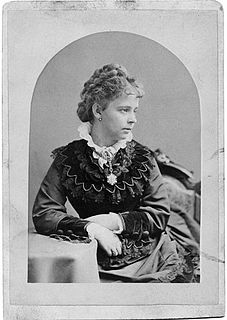A Quote by Bernard Bailyn
The categories within which the colonists thought about the social foundations of politics were inheritances from classical antiquity, reshaped by seventeenth century English thought.
Related Quotes
We should have scant notion of the gardens of these New England colonists in the seventeenth century were it not for a cheerful traveller named John Josselyn, a man of everyday tastes and much inquisitiveness, and the pleasing literary style which comes from directness, and an absence of self-consciousness.
The strong bond of sisterhood was a famous trait in classical art and literature about Amazons. But it was modern people who interpreted that as a sexual preference for women. That started in the 20th century. The Russian poet Marina Tsvetaeva declared that Amazons were symbolic of lesbianism in antiquity.
Shakespeare was an intellectual ocean, whose waves touched all the shores of thought; within which were all the tides and waves of destiny and will; over which swept all the storms of fate, ambition and revenge; upon which fell the gloom and darkness of despair and death and all the sunlight of content and love, and within which was the inverted sky lit with the eternal stars -- an intellectual ocean -- toward which all rivers ran, and from which now the isles and continents of thought receive their dew and rain.
Thought as such… is an act of negation, of resistance to that which is forced upon it; this is what thought has inherited from its archetype, the relation between labor and material. Today, when ideologues tend more than ever to encourage thought to be positive, they cleverly note that positivity runs precisely counter to thought, and that it takes friendly persuasion by social authority to accustom thought to positivity.
The discussions of every age are filled with the issues on which its leading schools of thought differ. But the general intellectual atmosphere of the time is always determined by the views on which the opposing schools agree. They become the unspoken presuppositions of all thought, and common and unquestioningly accepted foundations on which all discussion proceeds.
When you start witnessing something without thought, there is no obstruction for absorbing the knowledge about that thing because there is no thought. It's complete absorption which takes place. And then it manifests. This is how the Divine Power works within us. So with our gravity, what we do is to touch that depth within us, which can carry the Divine Power and manifest.
The apartments of the rich are cabinets of curiosities: a conglomeration of classical antiquity, gothic, renaissance; Louis XIII... Something from every century but our own, a predicament that has arisen in no other period... so that we seem to be subsisting on the ruins of the past, as if the end of the world were near.
When we were making it [Star Wars], none of the effects were in. So the first time, I thought it was, you know, that - I mean, we were surrounded by English crew members that could hardly keep themselves together. They were, "Here comes the guy in the dog suit." They made fun of us, which was OK. But the first time I was sitting in a theater, and I saw all the effects in, and the big ship flew over the audience, and the sound rumbled, I pretty much thought we were close to home.
If you look at social movements in Latin America, there are spaces where alternative politics are thought about on the ground, at the grassroots level, but they are always under threat. The problem in North Africa and the Middle East is the politics of oil. It means that the spaces for truly grassroots politics, involving those masses of people excluded from high politics, are very quickly closed down. They are not really allowed any kind of autonomy to develop, and that seems to be the real problem, which gets us back to the neo-colonial relationship.







































